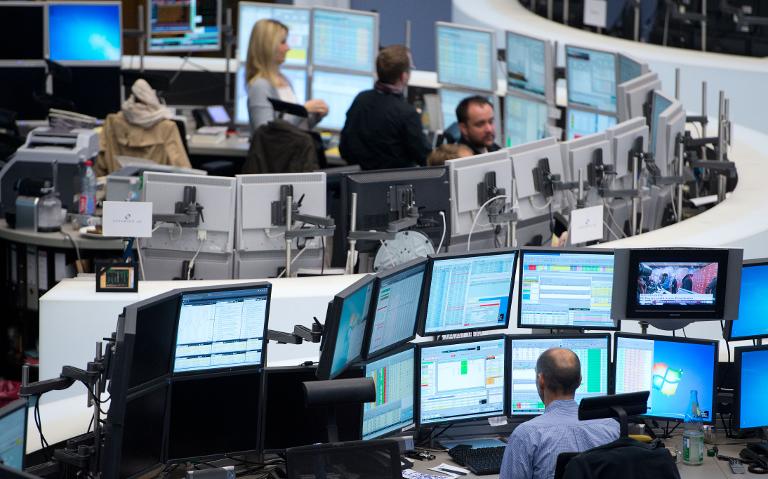
European stocks slump on Chinese devaluation
Shares in mining companies, carmakers and luxury goods groups, which rely heavily on Chinese demand, fell sharply for a second day.
London's benchmark FTSE 100 index ended the session 1.40 percent lower to stand at 6,571.19 points.
Frankfurt's DAX 30 finished 3.27 percent down at 10,942.61 points, while the CAC 40 in Paris dropped 3.40 percent at 4,925.43 compared with Tuesday's close.
In foreign exchange, the euro rose to $1.1194 from $1.1042 late in New York on Tuesday.
"Once again, the investor sentiment has been hit hard by events happening in China," said Fawad Razaqzada, analyst at investment group Forex.com.
"The market has reacted to the Chinese data and... moves to devalue its currency are a sign that the world's second largest economy is struggling."
Connor Campbell, a London analyst for Spreadex, called China "the new market bogeyman" responsible for the stock "sell-off (intensifying) as investors flee China-fearing markets."
Taking a longer view, however, Razaqzada noted that "essentially, a weaker yuan should help to support exports and hopefully revive growth."
Beijing's surprise devaluation of the yuan by 1.86 percent on Tuesday had already sent ripples through global financial markets, prompting a wave of selling in equities and commodities and buffeting Asia-Pacific currencies.
Asian stock markets tumbled on Wednesday as the People's Bank of China again reduced the value of the yuan against the greenback, trimming the reference rate by 1.62 percent.
Given its consecutive-day yuan interventions, Campbell said continued market turmoil could be expected "if the People's Bank of China scores a hat trick of devaluations" with another announcement Thursday.
"Some semblance of clarity could arise following a PBOC press conference on Thursday, though the markets likely shouldn't get their hopes up," he warned.
Investor nerves were further rattled Wednesday when three key indicators released by China all came in below expectations.
- Recession-bound Greece -
Aside from China, the focus was firmly on Greece, with Athens and its creditors set to put the finishing touches on a third international bailout agreement aimed at saving the eurozone nation's stricken economy from collapse.
The 400-page text has already been submitted to the Greek parliament for a crucial vote on ratifying the deal, which sets out the fiscal and other policy measures that Athens must adopt in exchange for the 85 billion euro ($94 billion) lifeline.
EU officials said Eurogroup finance ministers will meet in Brussels on Friday to review the agreement with Greece in an effort to finalise the deal by August 20, when Athens must repay some 3.4 billion euros to the European Central Bank.
Earlier Wednesday, EU sources said Greece's economy will tumble back into deep recession this year and next.
The Greek economy, which only crawled out of a six-year recession in 2014, will shrink 2.3 percent in 2015 and another 1.3 percent in 2016, the sources said, as the government pushes through a bailout aimed at helping Athens stay in the eurozone.
Athens' main stocks index ended the day 1.93 percent lower at 691.40 points.
US stocks similarly slumped Wednesday, retreating for a second straight day on concerns about China.
In trade in New York shortly after noon, the Dow Jones Industrial Average stood 1.41 percent lower at 17,158.05 points.
The broad-based S&P 500 dropped 0.96 percent to 2,084.07 points, while the tech-rich Nasdaq Composite Index fell 1.54 percent to 4,959.33.

Legal Disclaimer:
MENAFN provides the
information “as is” without warranty of any kind. We do not accept
any responsibility or liability for the accuracy, content, images,
videos, licenses, completeness, legality, or reliability of the information
contained in this article. If you have any complaints or copyright
issues related to this article, kindly contact the provider above.


















Comments
No comment